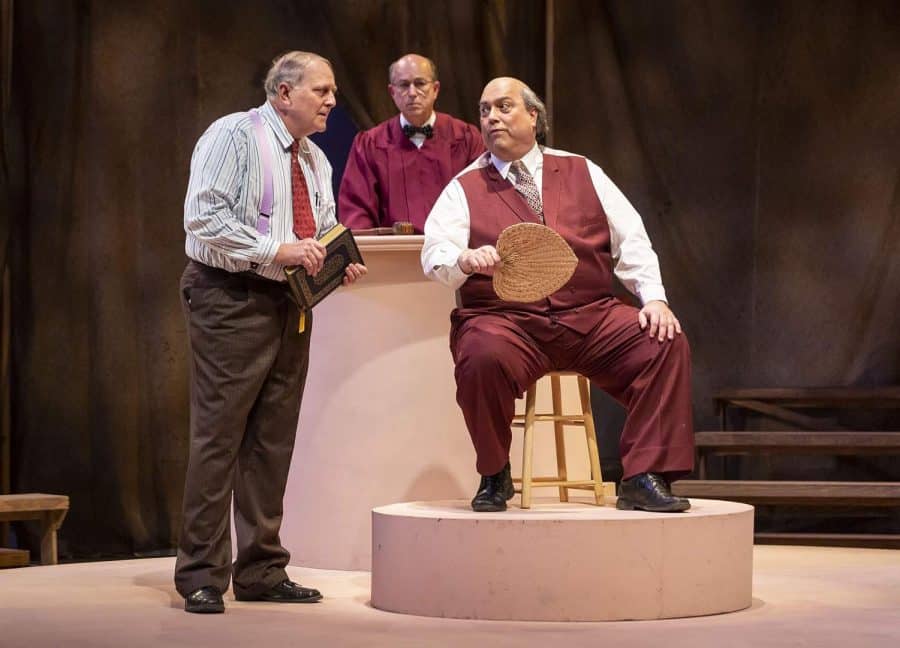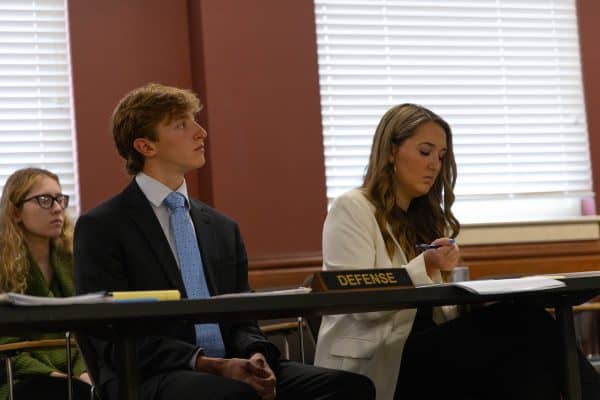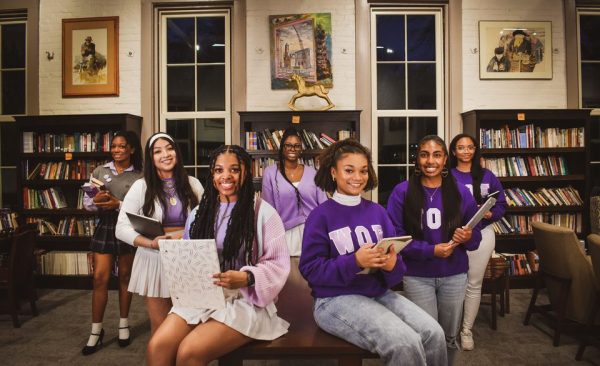‘Inherit the Wind’ reimagines a fascinating history
February 24, 2020
This past week, Theatre Tuscaloosa put on the historical courtroom drama “Inherit the Wind,” written by Jerome Lawrence and Robert E. Lee. Based off the Scopes-Monkey Trial of the 1920s, two lawyers battle it out in a sleepy, Southern Christian town for the right for humans to think and believe in what they think is right.
“Inherit the Wind” opens with a little boy picking up worms and telling a young girl that the world used to be covered in water. She grips her sock monkey tightly in her arms and is appalled when the boy says that her whole family used to be worms. Her disgust is a mere sample of the uproar that science will cause later in the show.
The play is a fictionalized account of the infamous Scopes-Monkey Trial of the mid-1920s, which involved the fight between a high school science teacher who taught his students Darwin’s theory of evolution and the small, Southern Christian town of Hillsboro. “Inherit the Wind” largely takes place in the courtroom, where it seems to be one man and his lawyer against the world.
Beth Ensey, the play’s director, said that one of her favorite parts about the process of bringing the show to life was the relevancy of the play’s topics to a modern audience.
“It’s a show that I think is always relevant to what’s going on in the world,” Ensey said. “I just felt that with the way things are in the world, where we’re so divided, a chance to watch a story that happened 100 years ago and yet reflects what’s happening in our world today would be an important show.”
The set of the play, which was designed by Jameson Sanford, was modeled after the tents at old-timey carnivals, complete with red and white stripes and a big top made of lights, and stands for the onlookers to gaze at the courtroom drama. The setting only adds to the chaotic, intense and almost humorous courtroom scenes where the characters are scrambling to beat each other to the finish line.
“I just think that it’s something that we need to talk about,” Ensey said. “People have the right to think. One of the characters talks about how they’ve been ‘deboobed’ by Marconi, but now I think that it’s Amazon and Facebook and where we’re getting our information and what is real, our ability to make up our mind and be able to think, and believe, and wonder and question. I think it’s timeless.”
Tina Turley, the show’s producer, said that the actors in the production were extremely dedicated and were able to easily bring the show to life. For example, she said that Charles Prosser, the actor who plays lawyer Matthew Harrison Brady, cut his hair to become half-bald in order to better get into the mindset of his character.
“We are still influenced by those around us and how we choose to get information,” Turley said. “So even though we get it more immediately, whether I get my news using Facebook or Fox News or whatever, I surround myself with people who give information that have a way of influencing me. The ability to decide for oneself is our freedom. When we put that on trial and when people begin to say whether the truth should be legal, it’s about the ability to make a decision for ourselves.”
The show, despite being based on a trial that happened nearly a century ago, still echoed the problems and issues prevalent in today’s world. It brought up the timeless questions about how humans shape their perspective and fight for what they believe in.
Jenny Ryan, who played Mrs. Brady in the show and is the director of the Children’s Rights Center at the UA law school, said that being an attorney in real life made it fitting for her to act in a court case drama.
“It’s the type of play that makes you think about your own entrenched thoughts and values,” Ryan said. “The argument that what sets us apart from any other living being is our ability to think, allows us to take those thoughts and values and decide how they work with all the new things we learn as individuals and as a society.”
While courtroom dramas often have the reputation of being slightly boring, “Inherit the Wind” is full of humor and fascinating historical details that captivated the audience throughout the entirety of the play. From heated courtroom battles to swooning, worshipful appreciation for one of the lawyers, the play truly had something for anyone to enjoy.
“In this play, there are two people who are fighting, but at the end, there’s a recognition of the humanity of both of the men and how there is a respect,” Turley said. “So even though we argue, at the end of the day, we’re human. How we treat one another is what’s important.”











